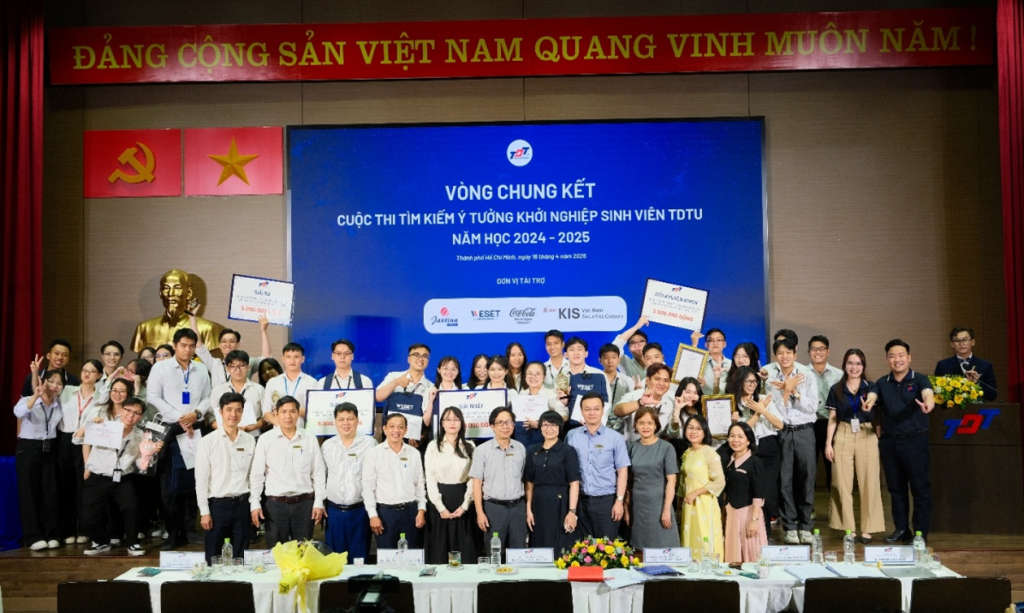On April 16, 2025, the final round of the "TDTU Student Startup Idea Contest for the Academic Year 2024–2025" took place vibrantly at Hall 10F of Ton Duc Thang University. This annual event is organized by the university to inspire a spirit of entrepreneurship, promote innovation, and encourage students to apply technology to address real-world challenges.
Throughout two challenging rounds – Round 1: Idea presentation and defense and Round 2: Scenario-based Q&A with the judging panel the participating teams demonstrated exceptional creativity, resilience, and critical thinking. After more than four hours of intense competition, the team from the Faculty of Electrical and Electronics Engineering was honored with the Second Prize, affirming their outstanding capabilities and the faculty’s commitment to practical, community-oriented innovation.
The team, comprising Nguyen Dinh Duc, Le Van Thinh, Cao Hoang Khai, and Mai Diep Minh Quan, under the dedicated guidance of faculty members from the Faculty of Electrical and Electronics Engineering, developed and presented the project “Assistive Device for Learning Braille for the Visually Impaired” a deeply human-centered technological solution designed to help people with disabilities, particularly the visually impaired, access knowledge more easily, actively, and engagingly.
The device features a custom-designed Braille display with 6 pins per character, capable of representing all 64 Braille character combinations in the extended Vietnamese Braille system. These characters are dynamically formed by a precise micro-motor system that raises and lowers the dots according to the lesson content. Uniquely, the device is integrated with a computer and runs on a web-based learning platform, offering interactive lessons enriched with audio, images, and voice recognition technology. This allows users to learn Braille through simple button presses or voice commands, making the experience more intuitive even for those with limited vision.
Beyond educational support, the product opens up opportunities for communication, personal development, and social inclusion for visually impaired users, thereby promoting equality in knowledge access and empowering disadvantaged communities. The project is not only a technological solution but also a meaningful contribution to social equity. The device helps significantly reduce the cost of education, especially by minimizing the need for specialized instructors, as it enables independent learning for the visually impaired. Consequently, the device improves learning productivity, expands access to knowledge, and enhances the self-reliance and employability of its users. In the long term, it contributes to sustainable social value, supports inclusion, and reinforces the active role of visually impaired individuals in society—fostering the development of a more equitable, compassionate, and progressive community.
Highlights from the Final Round:







